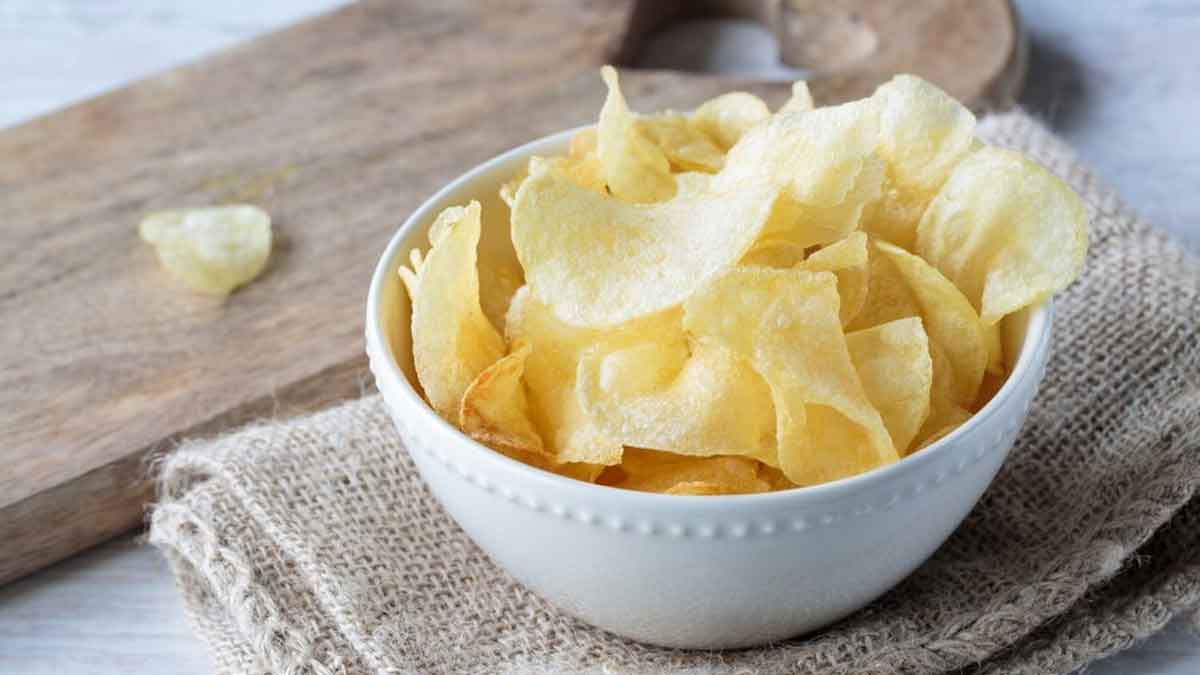Menstruation is a natural part of life which subjects women to a range of physical and emotional changes. It can be a tough time of the month. However, there are many natural therapies and home remedies that can help alleviate the symptoms of periods like menstrual cramps and mood swings.
While there's no one-size-fits-all approach to managing menstrual symptoms, you may find some relief by being mindful of your dietary choices. Here are certain foods that are better avoided during periods for comfort and well-being.
Salty Snacks
High-sodium foods can contribute to water retention. The Action on Salt organisation shared that your body retains 1.5 litres of water if you consume too much salt, and this quantity keeps rising with the amount of salt intake. This can potentially exacerbate bloating—a common concern during menstruation. It's advisable to limit the intake of salty snacks like chips, french fries, namkeen, and processed foods.

Sugary Treats
While it's tempting to reach for sugary treats during your period, excessive sugar intake can lead to fluctuations in blood sugar levels, potentially worsening mood swings and irritability. The University of Michigan shared that rapid blood sugar spikes have historically shown to worsen psychological health and causes anger, sadness, and nervousness in the short term. Instead, opt for natural sweets like fruits and dark chocolate in moderation.
Caffeine
Caffeine, found in coffee, tea, and certain sodas, can contribute to breast tenderness and increase anxiety and irritability in some individuals, according to a study titled ‘Caffeine and Breast Pain.’ Consider reducing your caffeine intake or choosing herbal teas as an alternative.
Fatty Foods
High-fat foods, especially those rich in saturated fats, may contribute to inflammation and cramping. It's advisable to moderate the consumption of fried foods, fatty cuts of meat, and full-fat dairy products during your period.
Also Read: Menstruation Diet: Expert Lists Foods To Eat And Avoid
Dairy Products
While dairy is a good source of calcium, some women may experience increased bloating and discomfort during their periods due to lactose intolerance. If you suspect dairy-related issues, consider alternatives like lactose-free products or non-dairy sources of calcium.
Processed Foods
Processed foods often contain additives and preservatives that may exacerbate inflammation and contribute to bloating. Opt for whole, minimally processed foods to support overall well-being.
Gas-Inducing Vegetables
The International Foundation for Gastrointestinal Disorders listed vegetables, such as broccoli, cabbage, and beans, can produce gas and bloating. While they are nutritious, consider moderating your intake or opting for gentler alternatives like spinach, zucchini, or carrots.
Listen to Your Body
Individual responses to foods during menstruation can vary. While some women may find relief by avoiding these food items, others may not experience any notable changes. That is why it becomes crucial to pay attention to your body's signals and adjust your diet accordingly.
Also Read: Prevent Menstruation Disorders By Making These Lifestyle Choices

While there is no universal ‘must-avoid’ list for everyone during menstruation, being mindful of your dietary choices can contribute to a more comfortable and manageable experience. Experiment with adjustments to your diet, and consider keeping a food journal to track how your body responds to different foods during your menstrual cycle. Remember that consulting with a healthcare professional or nutritionist can provide personalized guidance based on your unique needs and health considerations. By adopting a balanced and mindful approach to your diet, you can navigate your way through menstruation with greater comfort and well-being.